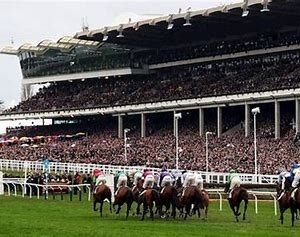The new Champions League structure, promises to completely alter our perception of the best in club football.
A Change in Format:
The days of having a group stage preceding knockout rounds are long gone. The framework of the new Champion League system is just as flexible as the game itself. Teams will now play in a Swiss-style system, with a set number of matches played by each club against opponents of different skill levels. This change from the previous structure adds a degree of unpredict ableness, guaranteeing that each match has a great deal of drama and weight.
Encouraging Fairness and Excitement:
Increasing fairness and excitement during the competition is one of the main goals of this revamp. Clubs will be put to the test against teams of all levels by playing a wide variety of opponents early on, which will eliminate the chance of an “easy group.” This levelling of the playing conditions improves the calibre of football being played on show as well as the competitive spirit.
More Chances for Underdogs:
Under the old arrangement, lesser teams frequently found it difficult to stand out in the prestigious competition due to the larger budgets of their more well-known rivals. Nonetheless, the new structure offers underdog teams a fantastic chance to succeed.
Strategy Adaptation:
The format change necessitates a strategy adjustment for both managers and players. Instead of preparing for a set group of teams, it is necessary to evaluate opponents match by match, which calls for a flexible and creative approach to tactics. The competition is made even more intriguing by this tactical evolution, which forces teams to modify their strategies on a regular basis in order to meet the challenges presented by their opponents.
Fan involvement and worldwide Reach:
The brand-new Champions League tournament structure seeks to improve fan involvement and broaden the tournament’s worldwide reach, going beyond the domain of strategy and competitiveness. Football fans worldwide will be greeted to a display that captures their attention from beginning to end with a more condensed calendar and an increased amount of high-stakes games. More clubs from a variety of football-playing nations have also been added to the league, which guarantees that it will continue to be popular with supporters on all continents and maintain its position as the top club championship in the globe.
Financial Implications:
Clubs will profit from more TV earnings, endorsement agreements, and ticket sales as a result of more matches and greater visibility. This income infusion helps smaller teams as well, supporting growth and financial stability throughout the footballing ecosystem while also bolstering the financial viability of participating clubs.
Effect on National Leagues:
Some worry that players’ performances in domestic competitions may suffer as a result of the Champions League’s heightened intensity and regularity. On the other hand, others contend that teams may be encouraged to make larger squad investments as a result of the increased reputation and monetary benefits that come with Champions League victory, which would raise the caliber of domestic competitions as a whole.
Technological Innovations:
Football fans may anticipate interacting with the event in previously unthinkable ways with cutting-edge broadcasting technologies and immersive virtual reality experiences. The Champions League’s status as a major international athletic event is further cemented by these technical advancements, which enhance the fan experience while also creating new opportunities for online participation and revenue.
Impact on Society and Culture:
By encouraging greater openness and diversity among the footballing community, the redesigned format offers a chance to magnify this impact on society and culture. In addition to providing a stage for players from a variety of backgrounds to display their skills, the Champions League also honors the rich legacy of European football culture. These values are demonstrated both on and off the field.
Environmental Sustainability:
The Champions League has made a commitment to lessening its impact on the environment by supporting eco-friendly mobility choices for teams and fans alike, offsetting carbon emissions, and designing sustainable stadiums.
In conclusion:
The implementation of this new Champions League competition structure represents an important turning point in the history of European football as it continues to develop. With a focus on excitement, fairness, and international appeal, this redesigned format is expected to wow viewers and raise the bar for competition to never-before-seen levels. Fans can anticipate an exhilarating journey full of turns, turns, and memorable events as the debut season plays out on the path to Champions League triumph.
FAQs:
What is the Champions League’s latest structure?
A revised model for the esteemed European club football championship is the Champions League system. Instead of using the conventional group phase followed by elimination rounds, it offers a swiss-style format wherein teams play a predefined number of games against opponents of varied strengths.
Why was the structure of the Champions League altered?
The Champions League structure was modified to encourage equity, thrills, and appeal to a worldwide audience. With fewer “easy groups” and more opportunities for underdog clubs, the new structure aims to level the playing field and promote fan engagement through a more condensed schedule and more high-stakes matches.
In what ways does the recently introduced format advance equity?
Fairness is enhanced by the new system, which ensures that each side plays a variety of opponents early on and does away with the chance of draws that go either way. By ensuring that clubs are pitted against teams of varying skill levels, the levelling of the arena fosters a competitive atmosphere inside the competition.
What effects does the new structure have on national leagues?
There is discussion over how the revamped Champions League structure will affect home leagues. Some worry that players’ performances in domestic competitions may suffer as a result of the Champions League’s increased intensity and frequency, while others think that domestic leagues’ overall quality may improve due to the greater prestige and financial benefits of Champions League success.
To read more, click here





